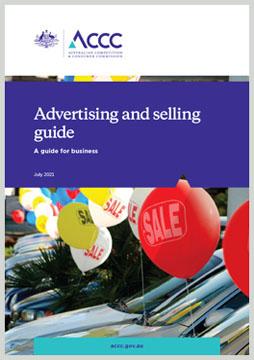Published
ISBN
978-1-921973-76-5
Honest advertising and selling practices under the Competition and Consumer Act 2010 benefit small businesses and consumers alike.
Enterprising small businesses should be able to prosper on the merit of their products or services without fearing that competitors will gain an unfair competitive advantage from dishonest representations.
Consumers also have a right to accurate and truthful information from businesses about their purchases.




